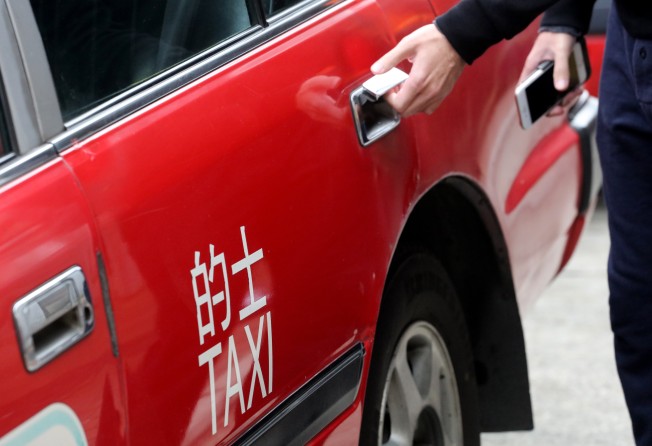Still a long way to go on road to reform for poor taxi services
- The announcement of a so-called premium cab franchise is as long overdue as the launch of an app that allows payment through Octopus card, but why should the public pay more?

Passengers can be excused for feeling unimpressed by a series of initiatives rolled out by the Hong Kong government and the taxi industry to address the challenges brought by the growing use of Uber and other car-hailing services. The announcement of the details of the so-called premium taxi franchise is as long overdue as the launch of an app that allows payment through the Octopus card. Whether they can respond to the demands for better services remains to be seen.
The proposed “premium” taxi service was first floated by the government in 2016 as the alternative to legalising Uber and the like. But it has taken three years for the Transport and Housing Bureau to map out the details in a 90-page paper, tabled to the Legislative Council this month for further discussion. Under the proposal, three franchises will be awarded to run 600 vehicles, which will offer more leg room, free Wi-fi and charging facilities. But the flag fall will be 50 per cent higher than the HK$24 currently charged by taxis.
Arguably, any initiative to improve service and enhance competition is to be welcomed. But why would passengers need to pay more for services that should have been provided by taxis in the first place? The higher charge proposed is indeed reinforcing the protection for taxis. As rightly questioned by the Competition Commission, why cannot the fare be determined through competition in the tender process? The assumption that passengers need to pay more for what is currently unavailable is hardly justifiable from the perspectives of fair competition and consumer protection.
With just 18,000 taxis serving a population of over 7 million, the shortage is obvious. The situation is further confounded by long-standing protectionism, so much so that there was little incentive for service improvement and adaptation over the years. It was not until recently that taxis were made available through an app, with fares payable by Octopus card. The “historic” move hailed by some industry leaders appears ludicrous in an era when almost everything can be done with just a few taps on the screen. Spurred by innovation and technological development, the need for adaptation and reform has never been stronger. The emergence of new and better alternatives means those who refuse to catch up will have little chance to survive. Even though there is no room for Uber and the like under existing law, the trend is something to be reckoned with. The outcome of an ongoing appeal against the conviction of 24 Uber drivers will have implications on the way forward.
This is hardly the end of the much-needed reform to bring taxi services in line with public expectations. The government and the industry must be prepared to go further in light of new developments.